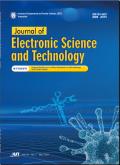GPON和EPON的动态带宽分配研究进展
Q1 Engineering
引用次数: 15
摘要
无源光网络(PON)技术近年来有了很大的发展。尽管采用了光学技术,但整个带宽的利用是一项非常具有挑战性的任务。PON主要分为以太网无源光网络(EPON)和千兆无源光网络(GPON)。这两种网络都使用动态带宽分配(DBA)算法实现带宽的最大利用,在服务水平协议SLA (service level agreement)的支持下,根据客户的需求动态提供网络中的带宽。本文将对这两种技术的DBA算法进行综述,并进行比较。本文章由计算机程序翻译,如有差异,请以英文原文为准。
Review on dynamic bandwidth allocation of GPON and EPON
The passive optical network (PON) technology has been drastically improved in recent years. In spite of using the optical technology, the utilization of the entire bandwidth is a very challenging task. The main categories of PON are the Ethernet passive optical network (EPON) and gigabit passive optical network (GPON). These two networks use the dynamic bandwidth allocation (DBA) algorithm to attain the maximum usage of bandwidth, which is provided in the network dynamically according to the need of the customers with the support of the service level agreement (SLA). This paper will provide a clear review about the DBA algorithm of both technologies as well as the comparison.
求助全文
通过发布文献求助,成功后即可免费获取论文全文。
去求助
来源期刊

Journal of Electronic Science and Technology
Engineering-Electrical and Electronic Engineering
CiteScore
4.30
自引率
0.00%
发文量
1362
审稿时长
99 days
期刊介绍:
JEST (International) covers the state-of-the-art achievements in electronic science and technology, including the most highlight areas: ¨ Communication Technology ¨ Computer Science and Information Technology ¨ Information and Network Security ¨ Bioelectronics and Biomedicine ¨ Neural Networks and Intelligent Systems ¨ Electronic Systems and Array Processing ¨ Optoelectronic and Photonic Technologies ¨ Electronic Materials and Devices ¨ Sensing and Measurement ¨ Signal Processing and Image Processing JEST (International) is dedicated to building an open, high-level academic journal supported by researchers, professionals, and academicians. The Journal has been fully indexed by Ei INSPEC and has published, with great honor, the contributions from more than 20 countries and regions in the world.
 求助内容:
求助内容: 应助结果提醒方式:
应助结果提醒方式:


